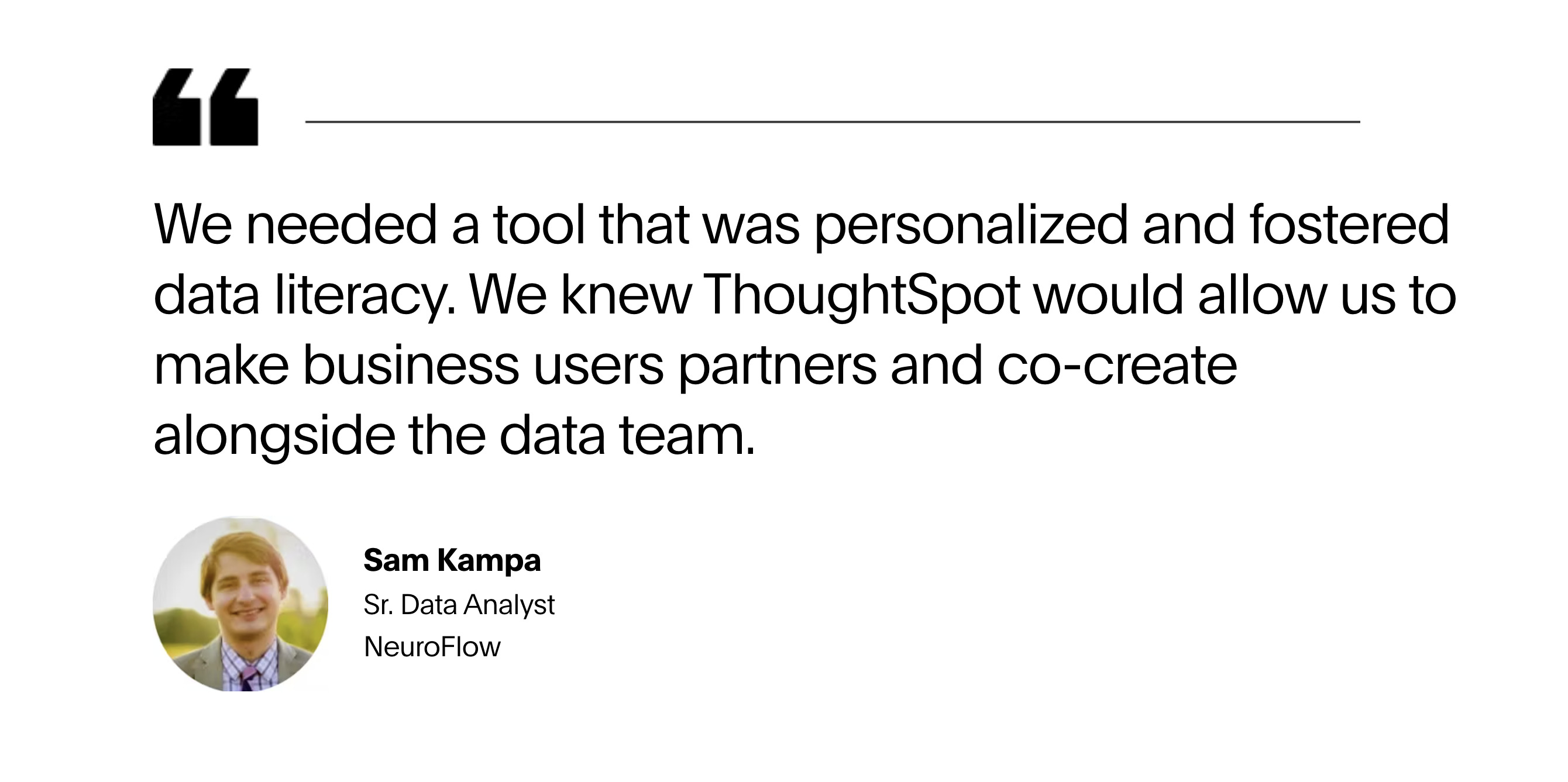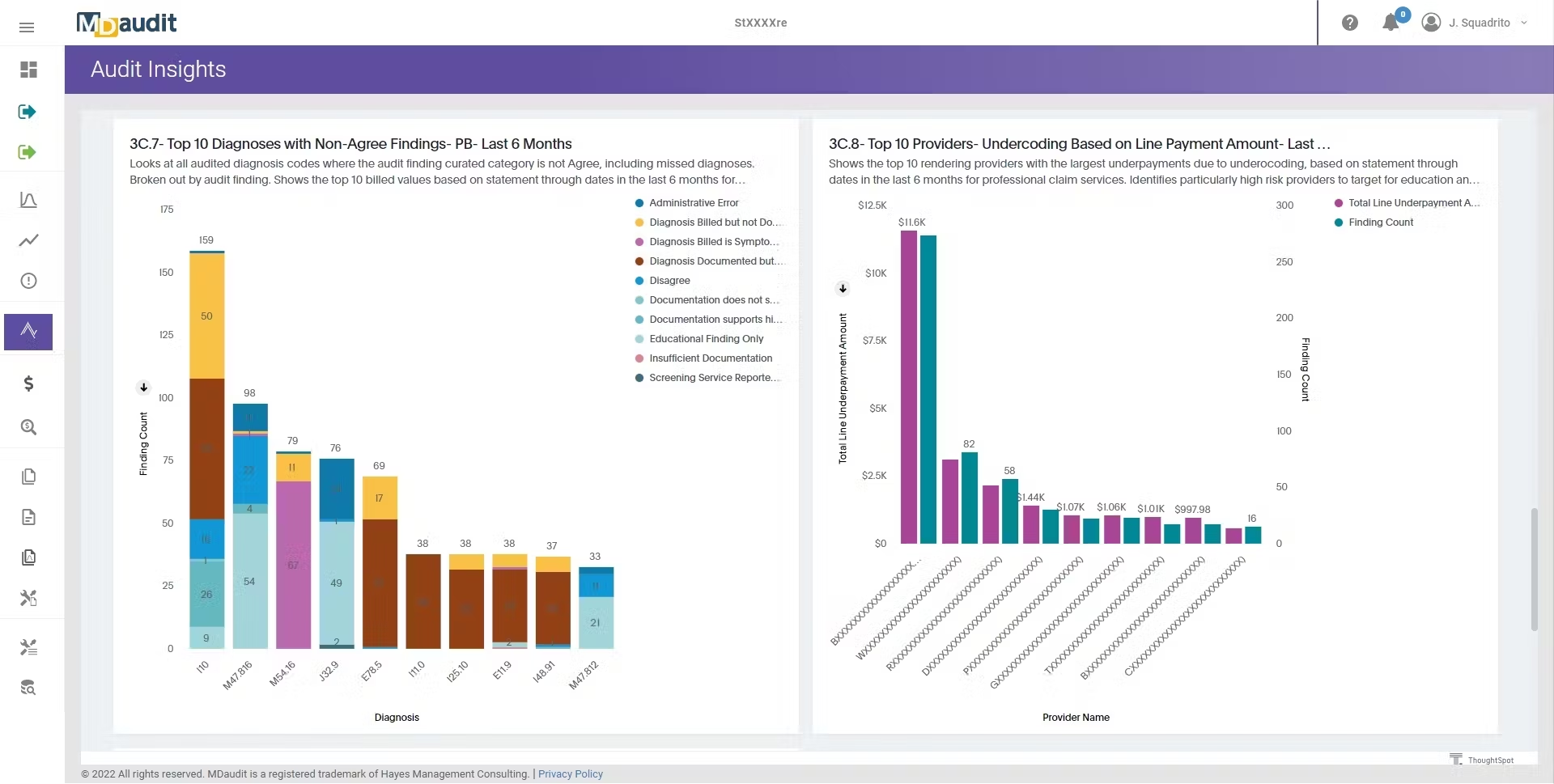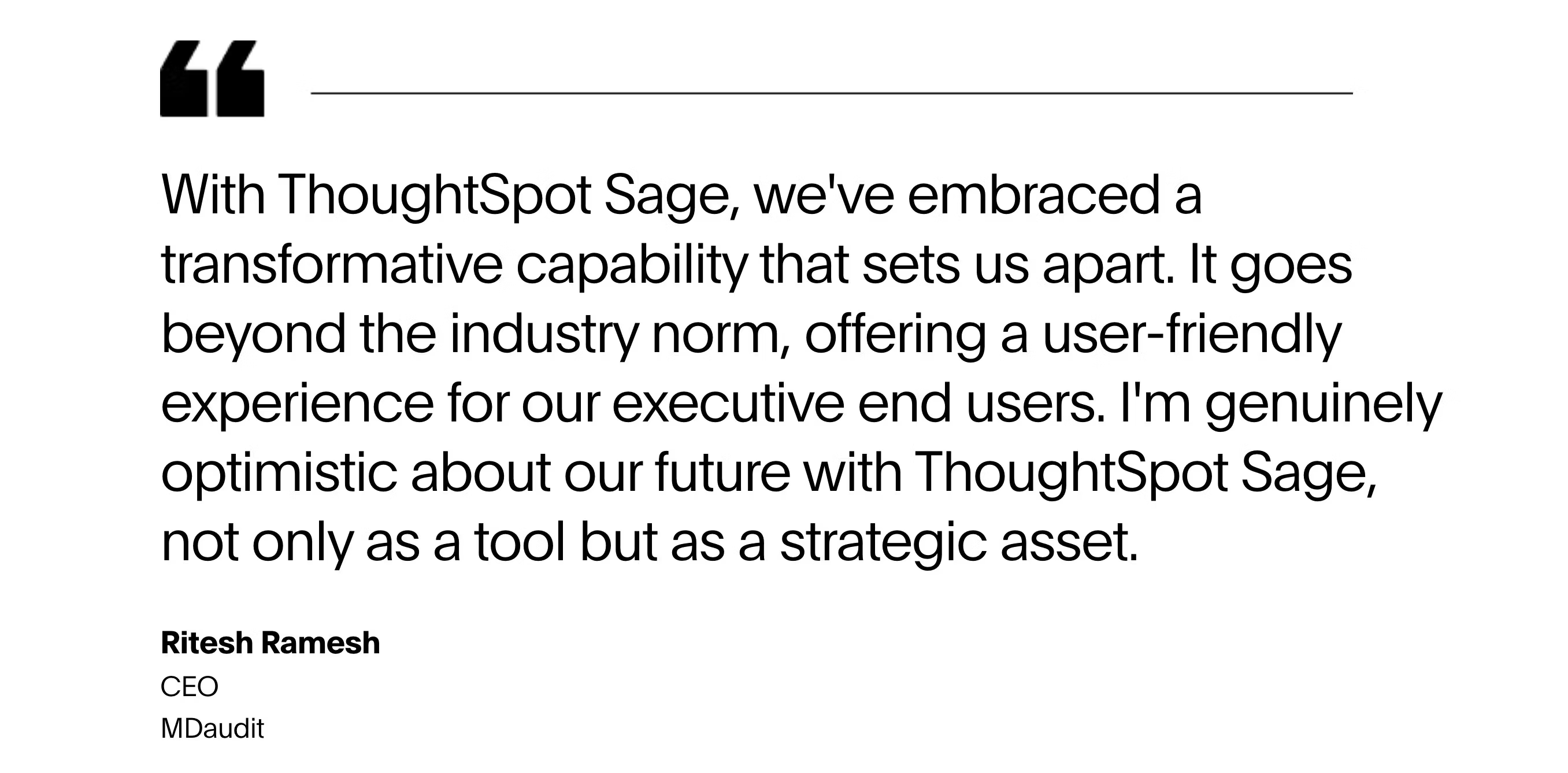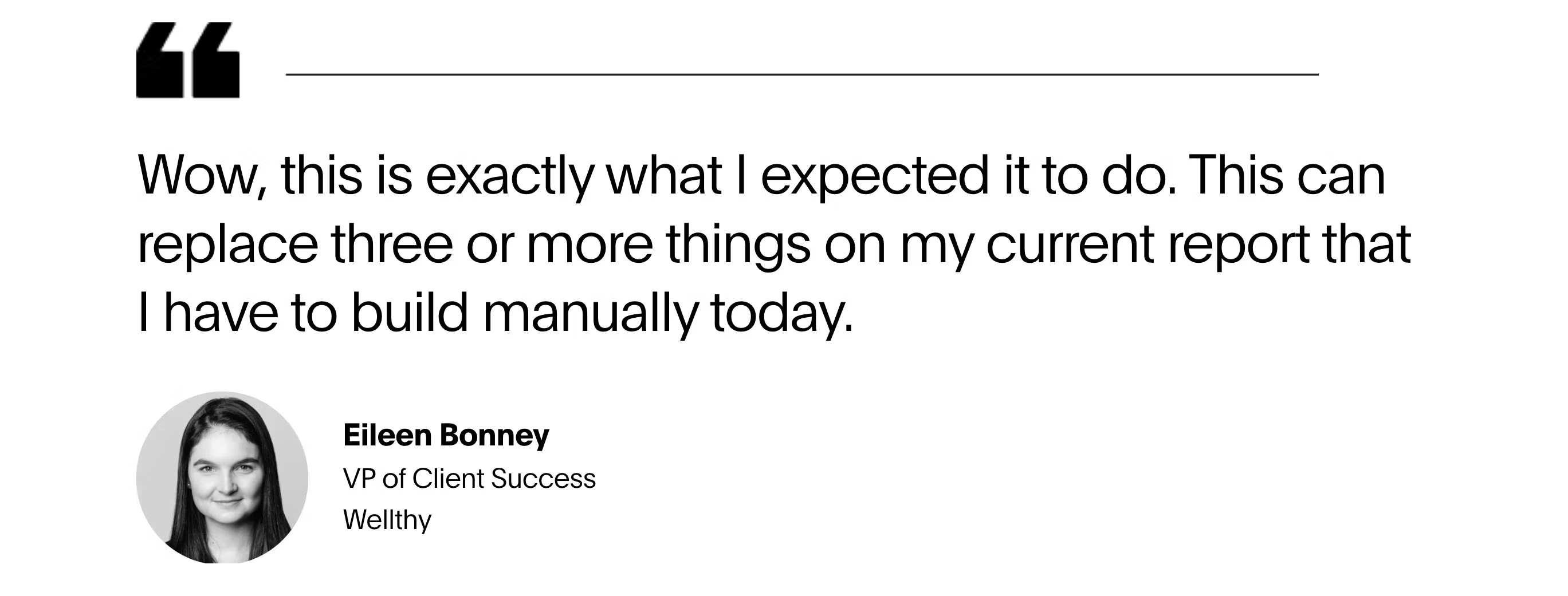Research by Accenture shows healthcare systems aren’t responding fast enough to changing consumer expectations, resulting in a loss of patient loyalty. To combat this, many organizations are investing in technology that improves data accessibility and enables real-time decision-making.
Enter healthcare analytics. This approach combines meaningful customer analytics with advanced data analytics tools and techniques to deliver real-time insights and identify opportunities.
Table of contents:
Healthcare analytics is the structured examination of past and current data to gain insights, draw conclusions, and support decision-making. Using statistical methods, machine learning algorithms, and AI models, data analytics in healthcare is designed to help you explore data and identify critical trends. The insights gained from your data exploration can help you enhance operational efficiency, optimize healthcare delivery, and drive patient outcomes.
Every day, healthcare providers collect troves of information—both structured and unstructured data—through channels like clinical notes, medical imaging, electronic medical records, insurance claims, and even patient sentiments. Managing these fragmented sources and creating a single source of truth is incredibly challenging.
Healthcare data analytics makes this task much easier. With a modern data stack and the right analytical technique, teams can quickly analyze billions of rows of data from a variety of sources and gain real-time visibility into important operations.
Which begs the question: How do you choose the right type of data analytics technique? Let’s dive in.
1. Descriptive analytics
Descriptive analytics uses past data to understand what has already happened. This type of data analytics technique summarizes large datasets, identifies relevant trends, and uncovers critical KPIs. In healthcare, descriptive analytics can open up a new world of possibilities for professionals, allowing them to analyze past patient data, optimize workflows, and improve financial performance.
For instance, using descriptive analytics, you can analyze historical patient data to understand the patient count over the past few years. This information is crucial for pinpointing operational inefficiencies and creating preventive care programs for better patient care.
2. Diagnostic analytics
Diagnostic analytics helps you uncover the ‘why’ behind past events. With root-cause analysis and data mining, healthcare providers can identify patterns and correlations in their data, leading to accurate diagnosis.
Consider the example below. By tracking the readmission rate of patients and using diagnostic analytics, you can identify the reasons for readmissions and take corrective actions. This analysis will enable you to assess the efficiency of your care programs, leading to a reduction in unnecessary healthcare costs and better healthcare outcomes for consumers.
3. Predictive analytics
Predictive analytics in healthcare uses advanced data modeling techniques, such as machine learning and artificial intelligence, to anticipate future events or trends. This powerful model helps healthcare professionals predict patient outcomes and proactively make decisions for patient care, resource allocation, and overall healthcare management.
Want to know how healthcare leaders leverage predictive analytics? Here’s what Mahmood Majeed, the Managing Partner at ZS Associates, told us on an episode of The Data Chief:
“Talking about AI use cases, you actually can predict the likelihood of a prescriber writing a script before a script is being written. You can actually prescribe, predict a patient dropping a therapy before it actually drops, or you can actually predict a plan changing their formulary status before it happens.”
-Mahmood Majeed, Managing Partner at ZS Associates
4. Prescriptive analytics
Prescriptive analytics goes one step further and suggests actionable recommendations to help you achieve your goal. This data analytics technique also uses machine learning and AI to guide healthcare providers and administrators in making informed decisions, improving patient care, and streamlining workflows.
Consider this with an example: By analyzing individual patient data, such as medical history, genetics, and responses, prescriptive analytics recommends personalized treatment plans. These insights can help healthcare providers move towards a more personalized, evidence-based treatment approach.
Gone are the days of static dashboards and stale insights. Today’s healthcare challenges require AI-Powered Analytics that allow you to drill into data and respond to real-time changes within minutes—not days or weeks. Here’s how healthcare analytics revolutionizes the way you operate your organization:
1. Personalizing care plans for patients
Today’s patient population wants healthcare providers to create care plans that are convenient, transparent, and personalized. A McKinsey survey found that satisfied patients are 28% less likely to switch providers. So, the real question becomes: How do you create personalized care plans for your patients?
Leverage GenAI and healthcare analytics. This powerful combination empowers medical professionals to holistically examine patient data, including their medical history, lab results, vital signs, and lifestyle factors to create a health profile. These insights remove the guesswork from the equation, helping providers identify the best treatment plans and reduce potentially consequential drug interactions for each patient.
2. Detecting risks early on
The last four years have been incredibly challenging for the healthcare industry, but it has also made providers realize the importance of being data-driven. With healthcare software, providers can monitor patients’ data in real-time and even use predictive models to determine which patients are at high risk.
For instance, imagine a patient with a family history of cardiovascular diseases, you could recommend screenings to assess risk factors. If initial screenings suggest elevated cholesterol levels and high blood pressure, you can deploy predictive analytics to evaluate the likelihood of the patient experiencing cardiovascular events in the future.
3. Accelerating data storytelling for research
Healthcare and life sciences have always been data-driven industries. But with modern data analytics tools, you can now create engaging data stories. Instead of receiving reports lacking context, all users, regardless of their skills, can now combine medical data with interactive data visualizations to understand patient problems and advance their medical studies.
Here’s how Dr. Victoria Gamerman, Global Head of Data Governance and Insights at Boehringer Ingelheim, leverages data storytelling to create better care programs for patients:
“Healthcare and clinical development is driven by science and data. That’s how we get insights. That’s how we derive information. And yet the exciting piece about this is also the evolution of evidence [and] the idea of what problems are we solving. The strategic component of data storytelling is knowing what doors it’s unlocking for us. And the combination of that with this medicine and clinical research domain expertise is what will allow us to best serve patients.”
4. Enhancing patient experience
Healthcare organizations that do not pay attention to customer experiences are naturally falling behind. The good news is that healthcare data analytics offers visibility into the patient’s entire care journey—from the moment they are admitted to their overall experience with the staff.
You can even analyze data from surveys and feedback forms to understand what patients want and how to reduce long wait times. This enables healthcare organizations to identify engagement points, address issues, and pinpoint experiment areas that need further improvement.
5. Improving bottom line
Like other businesses, healthcare analytics software helps healthcare organizations improve profitability and create a competitive advantage. Using real-time insights, you can identify bottlenecks in billing processes, reduce claim denials, and improve reimbursement rates.
This is also true in pharmaceuticals. Whether you are a manufacturer developing new drugs, or you want to identify growth opportunities for medication sales, leveraging analytics can help you lower operational costs and drive greater efficiency across all business functions.
1. NeuroFlow improves mental health outcomes for patients
NeuroFlow is a company dedicated to offering healthcare providers data-driven insights and actionable recommendations. However, as the company grew, they were facing issues with their legacy BI tools and struggled to process and analyze large datasets, restricting users from unlocking the true value of their data.
Luckily, ThoughtSpot’s intuitive search-based interface and powerful analytical capabilities empowered everyone in the organization to access data and effortlessly build and share Liveboards. With an 85% increase in BI Tool Net Promoter Survey score, ThoughtSpot is helping NeuroFlow reshape the delivery and adoption of integrated healthcare.

2. MDaudit achieves revenue goals and scales with ease
Being a leading healthcare billing compliance and revenue integrity SaaS platform, MDaudit aims to simplify billing, coding, and revenue outcomes for healthcare organizations by leveraging technology. To achieve this vision, the company was looking for a way to democratize data access to the point where every user could explore insights and build a more agile, forward-looking business.
By embedding ThoughtSpot into its mobile app, MDaudit experienced a 25% increase in business growth in 2023 and managed to scale with ease, seeing a 40%+ increase in user growth from 2021 to 2023. Not only this, the company also empowers stakeholders and end users to access insights anytime, anywhere.

Talking about ThoughtSpot’s AI-Powered Analytics, here’s what Ritesh Ramesh, CEO at MDaudit, has to say:

3. Wellthy boosts analyst efficiency and reduces data costs
Wellthy, a company that streamlines caregiving, was struggling to scale its data initiatives. Their data team was manually generating reports and tackling one-off requests, leaving little time to focus on important initiatives. Additionally, there was no way for the care team to drill down into the data and proactively identify insights. This was mostly due to the fact that Wellthy’s team was using legacy BI tools that require SQL and Python input.
Now, with ThoughtSpot’s AI-powered, user-friendly interface, everyone can ask queries and explore data without constraints. Doing so helped the company save over $200k by increasing analyst efficiency and even enabling front-line business users to find their own insights.
Here’s what Eileen Bonney, VP of Client Success at Wellthy, has to say about ThoughtSpot’s ability to democratize data:

Healthcare analytics solutions are helping businesses turn raw data into interactive data visualizations to transform the way they deliver care. Even better, they see results that exceed expectations: differentiation, revenue growth, and increased patient loyalty.
With the right analytics partner, you too can join their ranks. Schedule a ThoughtSpot demo today, and experience how our AI-Powered Analytics can help you tap into the value of your data.









